Against All Odds: How Community Health Workers Protect Children from Polio in the DRC
Published on November 21, 2024
The piece below originally appeared on USAID’s Medium blog. Read the original piece here.
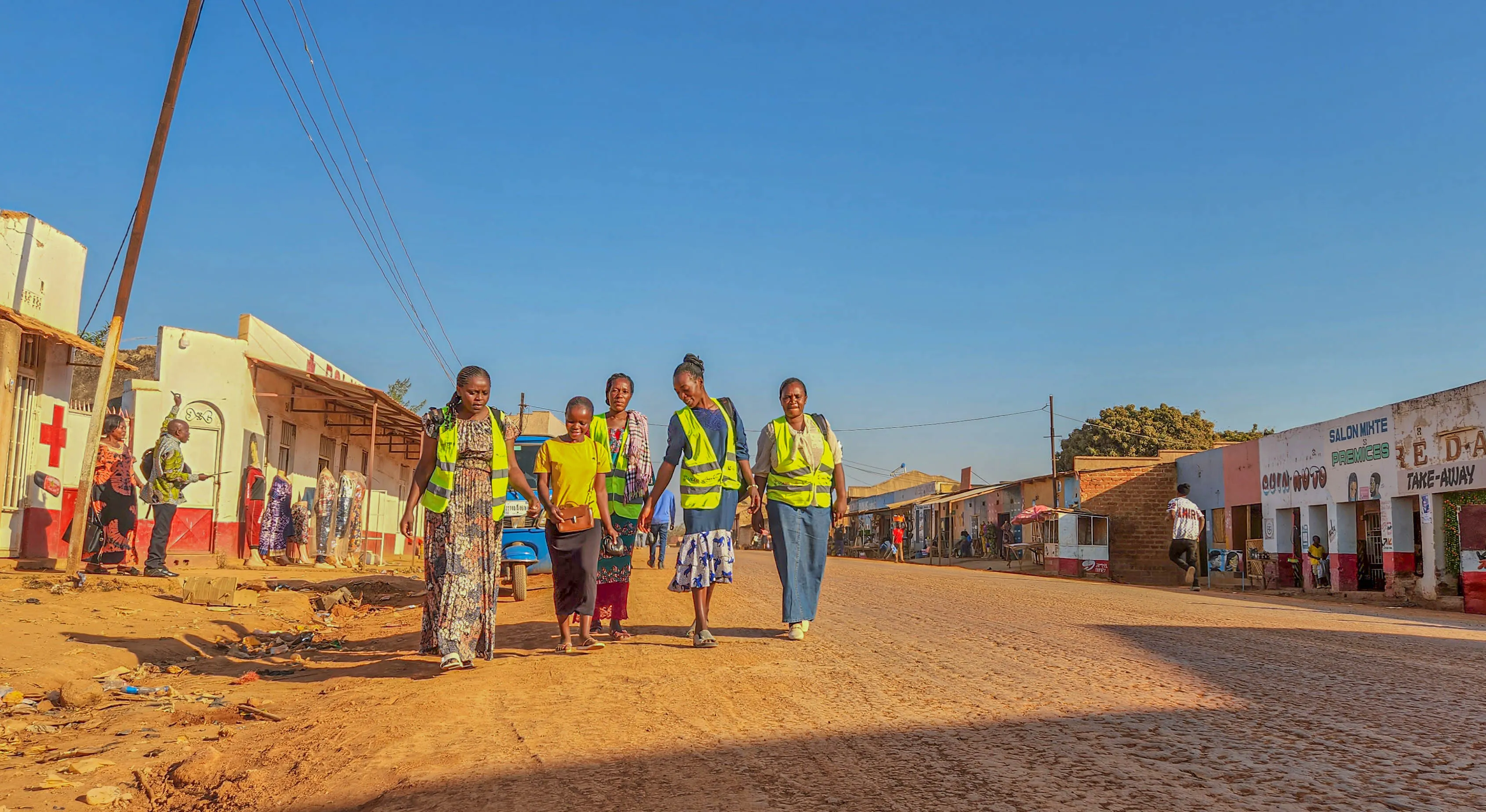
In the sun-drenched streets of Ruashi in the Haut Katanga Province of the Democratic Republic of the Congo (DRC), community health volunteers work tirelessly to protect children from vaccine-preventable diseases, including polio.
Among these volunteers is Nathalie, a trusted figure in Ruashi for over a decade, who goes door-to-door ensuring that children receive life-saving vaccinations.
For Marie, a mother of two, Nathalie became a lifeline when fear gripped her family. Marie’s youngest son had suddenly lost mobility in his leg — a frightening sign of acute flaccid paralysis (AFP), a rare but serious condition marked by sudden muscle weakness or paralysis.
Polio is a well-known cause of AFP, as the virus can attack the nervous system and lead to permanent paralysis. Understanding the urgency, Nathalie quickly stepped in, guiding Marie and her son through the healthcare system and ensuring he received the necessary care, which included tests and physical therapy. This swift response was critical in giving him the best chance at preventing permanently constricted legs and safely relearning how to increase mobility with the remaining muscles.
Marie’s family had moved frequently over the past five years, from one province to another. She and her husband had held reservations about vaccines, shaped by beliefs in their community. But after settling in Ruashi, Marie began to reconsider.
The awareness efforts of local health workers, along with Nathalie’s support and reliable information, opened Marie’s eyes to the importance of vaccines for protecting her children’s health. Now, all of her children are up to date on their vaccinations.
“Thanks to Nathalie’s commitment, he can now play with his friends,” Marie shared, eyes brimming with gratitude. “It felt like a miracle.”
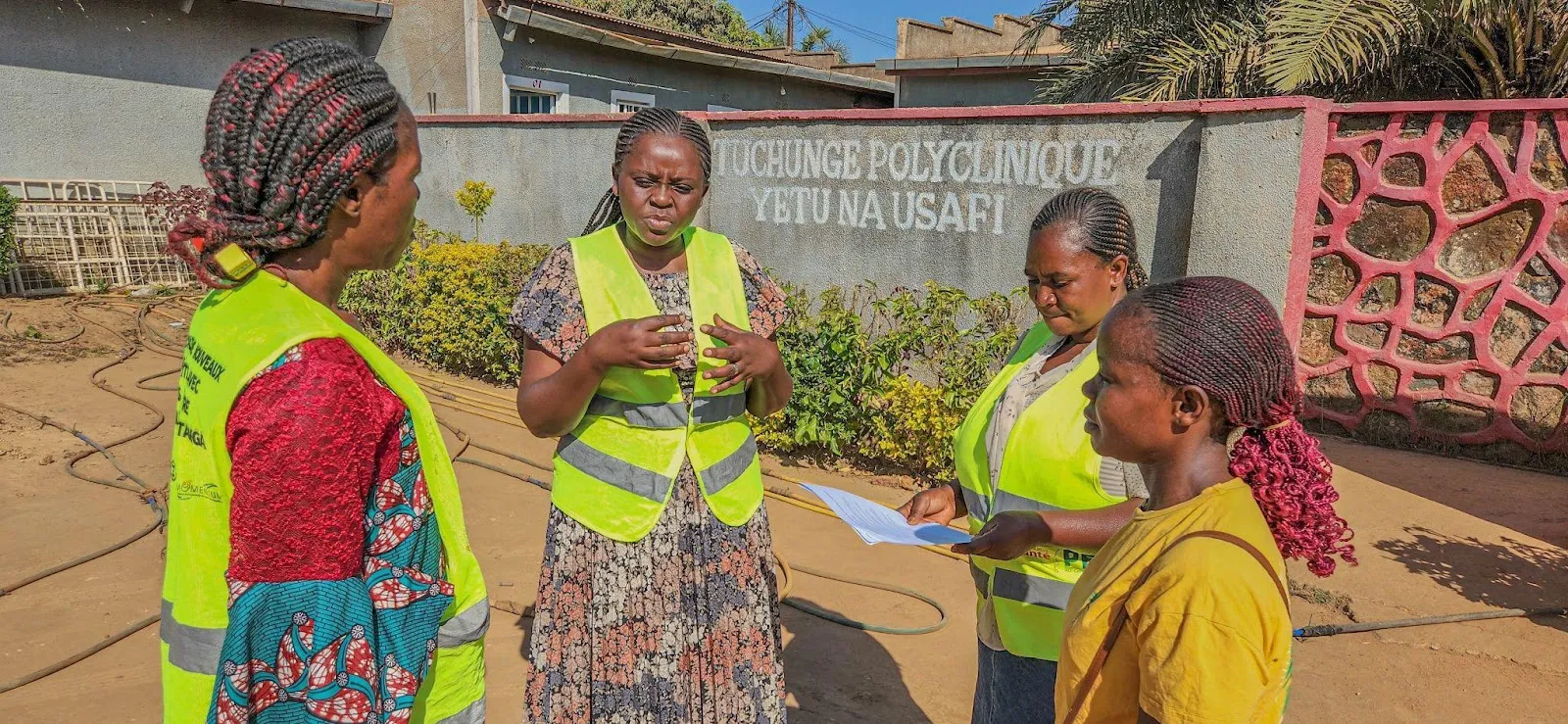
Fighting for Every Child
Nathalie’s intervention showcased the lifesaving role of vigilant community health volunteers like her. Yet, the broader challenge persists: polio and other vaccine-preventable diseases continue to threaten lives in the DRC, where vaccination rates remain low.
In the DRC, significant barriers hinder access to routine childhood immunization services. The country’s vast and often remote geography poses a logistical challenge. Limited infrastructure further complicates healthcare access. Many rural areas lack sufficient clinics, hospitals, and trained healthcare personnel, resulting in long travel distances for families seeking immunizations for their children. Ongoing conflict and instability in parts of the DRC add another layer of difficulty; in conflict-affected zones, immunization efforts are often disrupted, leaving children vulnerable to preventable diseases.
In 2022, only 66% of children were fully vaccinated against polio, allowing the virus to persist and trigger outbreaks in underserved regions. In 2023, only 49% of children received the third dose of the diphtheria, tetanus and pertussis (DTP) vaccine, falling short of the global standard of 90%.
This gap leaves millions vulnerable, with the DRC ranking among the top three countries worldwide with the most unvaccinated children, according to UNICEF.
For Nathalie and her fellow volunteers, these numbers are not just statistics; they represent the challenges they face each day in safeguarding Ruashi’s children.
To address this gap, USAID’s MOMENTUM Routine Immunization Transformation and Equity Project provides essential resources and training. In 2023, the project and local health authorities trained 581 managers, nurses, and community health volunteers from the Bipemba, Ruashi, Kenya, and Lubilanji health zones.
These volunteers, chosen by their communities, learned to recognize signs of polio and other vaccine-preventable diseases, read vaccination cards, and make regular home visits. Community health volunteers also help to locate children who missed appointments and connect them with health services, as well as report suspected cases to health facilities. Equipped to identify children and pregnant women in need of vaccination, community health volunteers close gaps in healthcare access.
USAID’s immunization programs are at the forefront of saving lives around the world, stopping the spread of vaccine-preventable infectious diseases, and helping communities thrive. These programs are an essential component of USAID’s support for partner countries to progress toward Sustainable Development Goal 3.2, ending preventable newborn and child mortality.
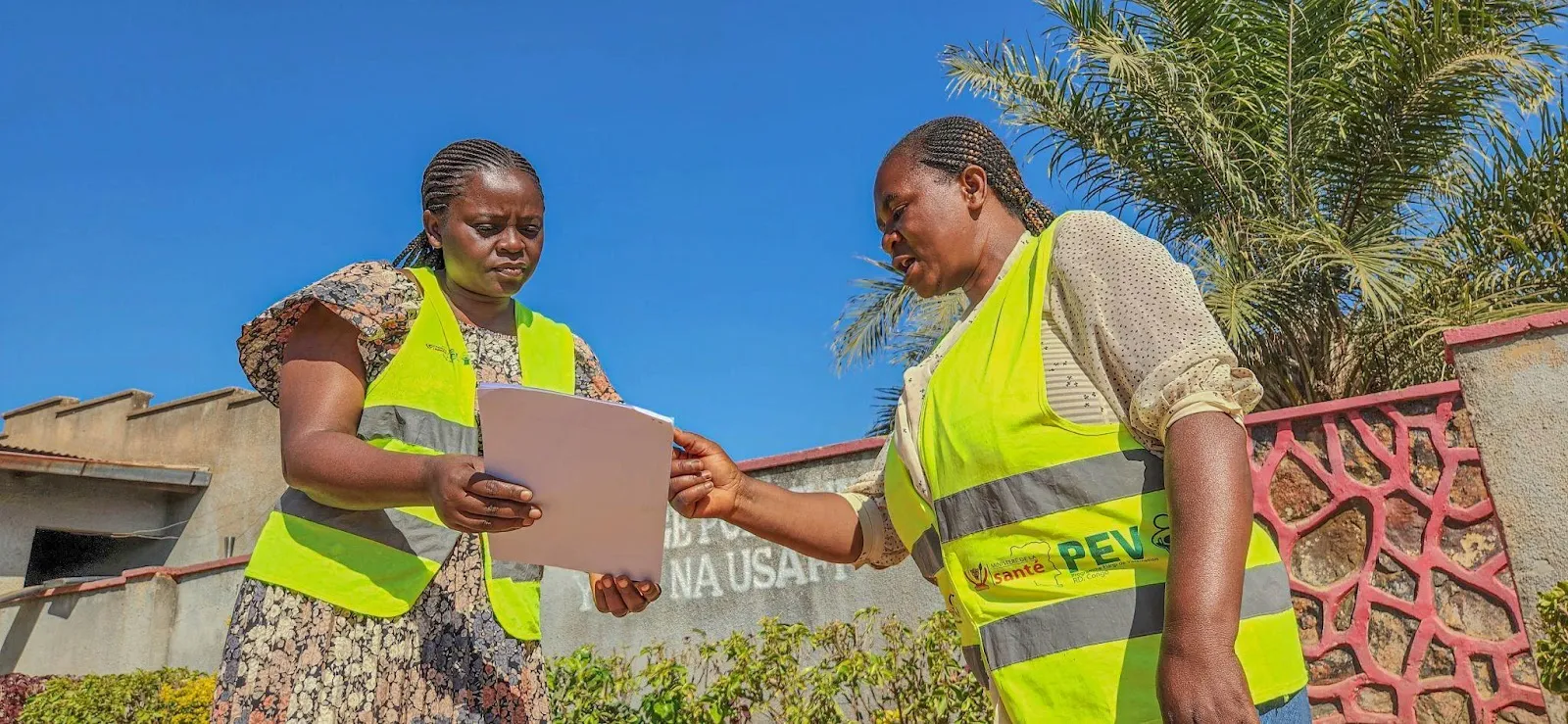
The Determination of Community Volunteers
Kathy, another volunteer, walks up to 10 kilometers each day, carrying health-related educational materials and reporting documents.
“We are sometimes confronted with families who are afraid of vaccines,” Kathy said.
By listening to their concerns and sharing stories of children in the neighborhood who were immunized against vaccine-preventable diseases, she slowly chips away at the fear and skepticism.
Through this work, over the past year, volunteers identified and referred close to 4,000 children who had never received a vaccine dose, and about 5,000 under-vaccinated children — all now connected to health centers.
The AFP surveillance system is commonly used to monitor potential cases of polio because poliovirus infection can present as AFP in affected individuals, especially children. The dedication of volunteers like Nathalie and Kathy has transformed Ruashi, contributing to a significant increase in reported cases of acute flaccid paralysis between 2022 and 2024. By tracking AFP cases, health authorities can identify and test for poliovirus to ensure timely intervention, close gaps in vaccination efforts, and help prevent the spread of polio.
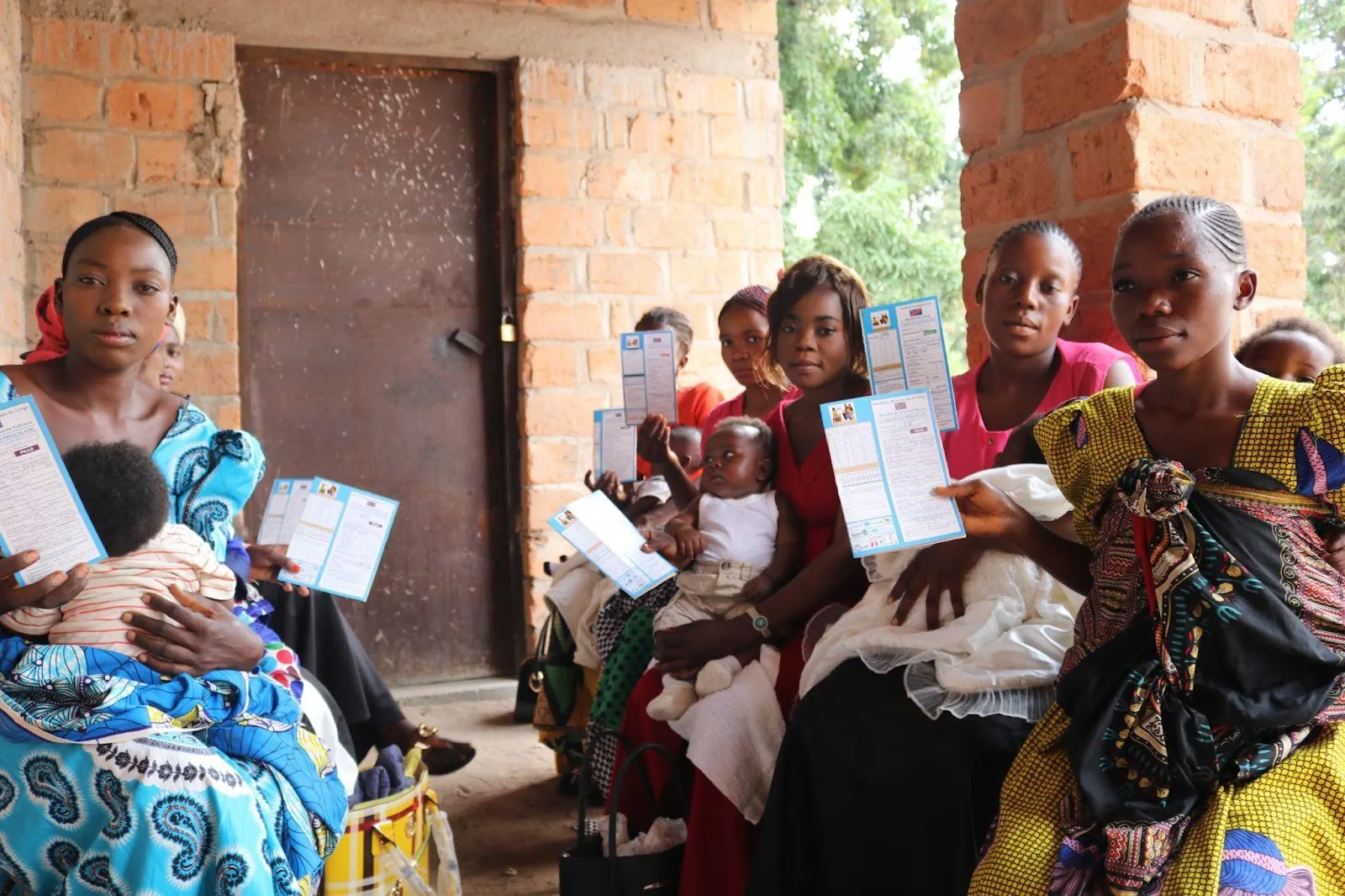
A Community Transformed
The impact of routine immunization and community-based surveillance efforts is visible in the children playing freely in Ruashi. Thanks to the vigilance of Nathalie, Kathy, and their fellow community health volunteers, more children are now protected against polio, measles, and other life-threatening diseases, and their caregivers are aware of the benefits of vaccination. For Nathalie, this is what keeps her going.
“There are days when I feel discouraged,” Nathalie admitted, reflecting on the long walks and sometimes wary parents. “But I know that every interaction can save a life.”
Her perseverance, alongside that of other volunteers, is building a future where diseases like polio are no longer a threat to Ruashi’s children.
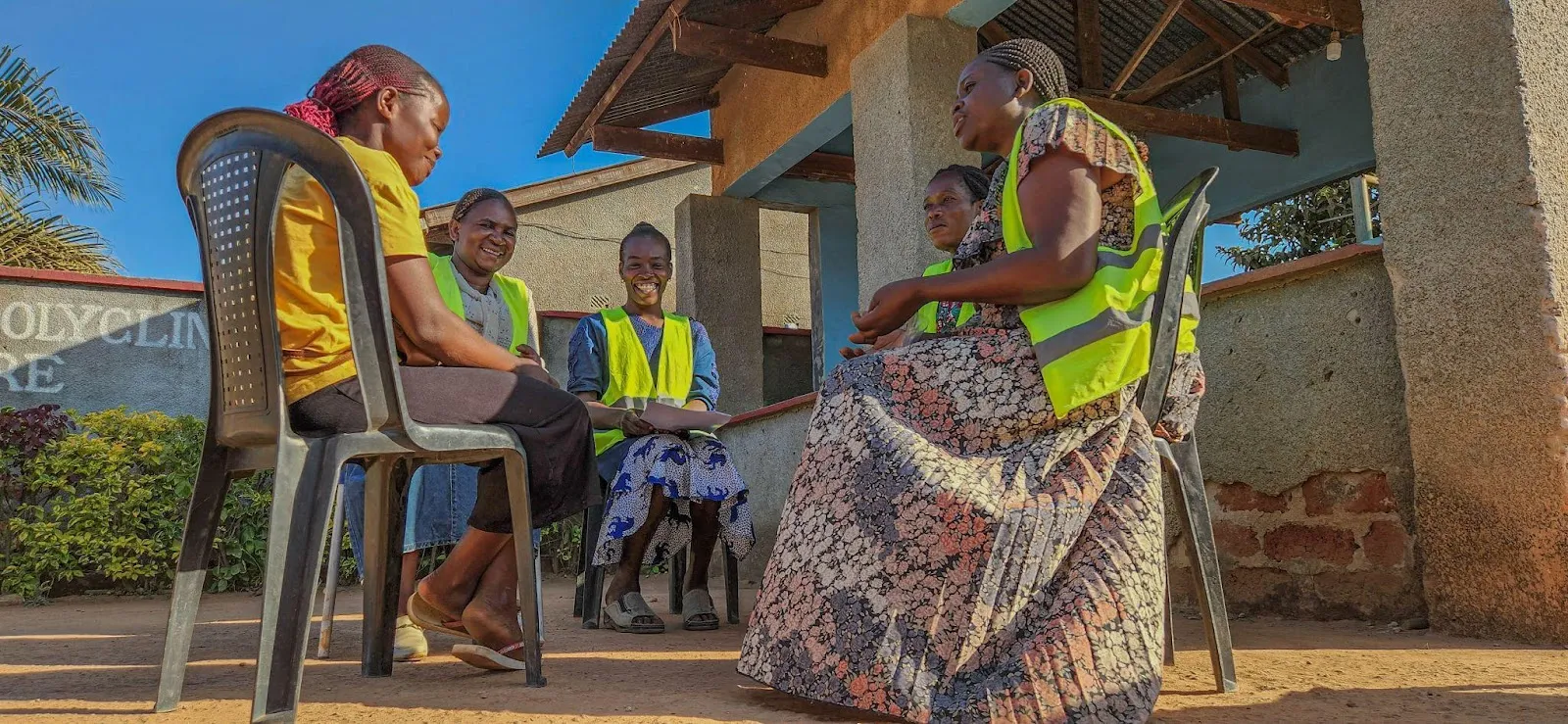
A Future Built on Health and Hope
On World Children’s Day, we are reminded of the invaluable role of community health volunteers in securing a healthier future for children everywhere.
“Every child vaccinated is a victory for all of us,” a mother in Ruashi said, expressing her gratitude for the volunteers who have become guardians of her children’s future.
Their efforts, supported by USAID, ensure that children in underserved communities receive the vaccines they need to thrive.

